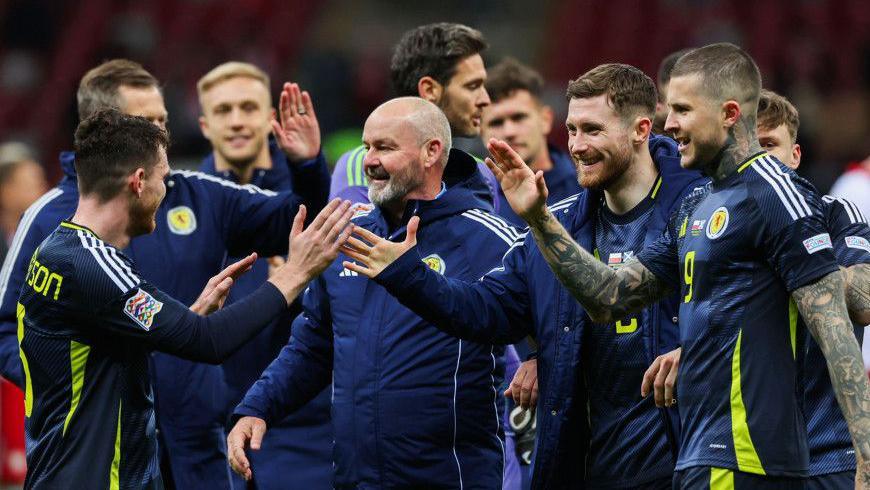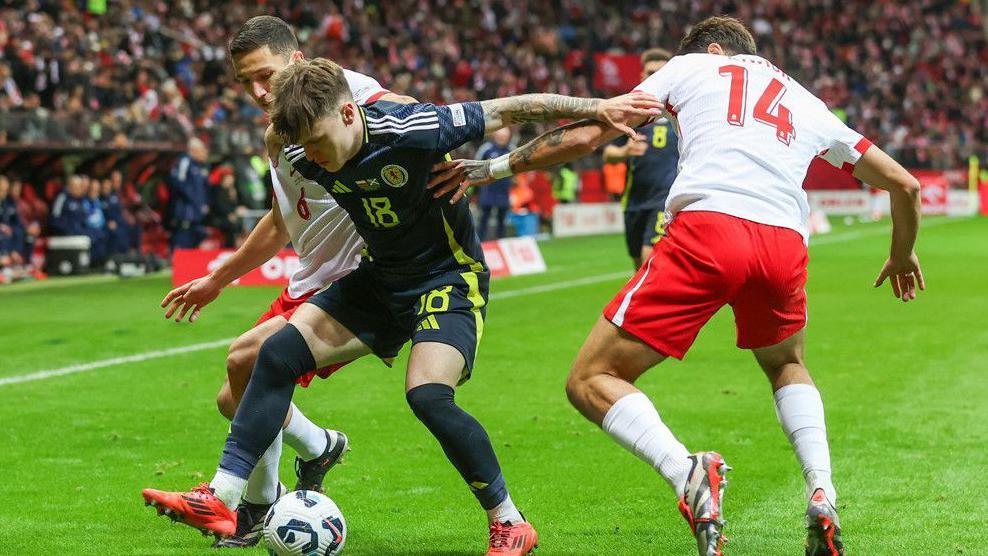A jubilant Steve Clarke skipped into the media room in Warsaw on Monday night, high fived the press pack he loves so much and then opened his heart about what victory over Poland meant to him on a personal level.
A tear trickled down the cheek of the Scotland manager. He apologised for being so emotional. That late winner from Andy Robertson had broken down the walls of his stoicism. "We’re back," he sobbed. "And you can write that."
Actually, no. That's not what happened at all.
Clarke behaved in exactly the same way he does in defeat. Same unreadable expression (with an occasional flickering smile), same measured tone. Never too high, never too low, never a headline in his words if he can help it.
The manager might be heroically deadpan but that doesn't matter so much when his team is so rent with drama, so insistent on taking their fans on wild flights from joy to concern to despair and anger, to hope and then back to joy again.
The pitchforks that were out for Clarke in the wake of the Euros can now be decommissioned. Put out the bonfires. Cancel the wake. There's an evolution going on here, not a footballing execution.
After a performance against Hungary at the Euros that was bankrupt of any redeeming features, Scotland have just put in six good performances in a row in the Nations League, none of them involving Kieran Tierney, Aaron Hickey, Nathan Patterson and Lewis Ferguson.
We've seen Cristiano Ronaldo flounce his way out of Hampden. We've seen the previously emotionless Luka Modric losing the plot. We've seen Josko Gvardiol, one of the best defenders in Europe, tormented by a teenager and we have seen the beginnings of a Scottish revival.

